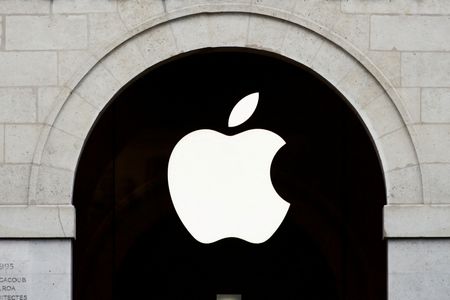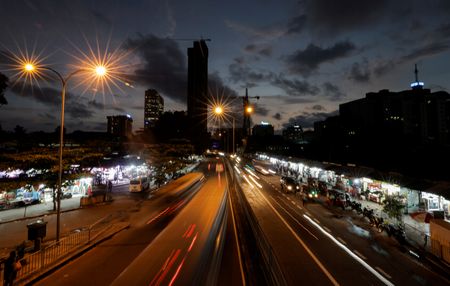By Joyce Lee and Ju-min Park
SEOUL (Reuters) -South Korean investigators probing President Yoon Suk Yeol’s short-lived martial law declaration failed to gain entry to his office to seek evidence on Tuesday after presidential office security staff denied them entry, Yonhap news agency reported.
Yoon was impeached on Saturday over his martial law decree and suspended from his presidential duties. Yonhap said that investigators looking for evidence about the legality of Yoon’s martial law decision waited for about seven hours to be let in, but the presidential office security service denied them entry.
A joint investigation team including police and the Corruption Investigation Office for High-ranking Officials (CIO) was trying to access computer servers of the presidential office’s security service to get records of phones including one used by the police commissioner, Yonhap said, citing the team.
This would be the second time authorities have tried and failed to raid the presidential office over the declaration of martial law that was reversed within hours after a standoff with parliament. An attempt on Dec. 11 ended without entry, but the presidential office voluntarily submitted some data.
The presidential office’s security service said it would express its position on Wednesday concerning cooperation with raids, Yonhap reported.
The police and the presidential office did not have an immediate comment on Tuesday. The CIO declined to comment.
Since his last public remarks shortly after he was impeached by parliament in a vote on Saturday, Yoon has kept a low profile and authorities and the Constitutional Court have not been able to contact or summon him, according to the court and officials.
Yoon has been putting together legal teams to defend himself against accusations of insurrection and in the Constitutional Court case which will decide whether to remove him from office or restore his powers.
Seok Dong-hyun, a lawyer and an ex-prosecutor who helps Yoon, told reporters on Tuesday that the president’s declaration of martial law did not constitute insurrection, Yonhap reported.
Yoon would also “confidently express his position in the (Constitutional) Court”, Yonhap cited Seok as saying.
Seok declined to say whether Yoon would comply with a summons to appear for questioning on Dec. 21, and said authorities needed to streamline current investigations being conducted by several agencies at once, including the prosecution, the police and the CIO, Yonhap reported.
Seok could not immediately be reached for comment by Reuters.
Meanwhile, South Korea’s acting president Han Duck-soo on Tuesday called during a cabinet meeting for next year’s government budget to be swiftly implemented from the start of 2025 in order to help revive the country’s slowing economy.
Han has been working to reassure South Korea’s allies and calm financial markets since taking over the duties of Yoon after the president was impeached.
The government has decided to frontload 75% of its 2025 budget to be implemented during the first half of the year, the finance ministry said in a statement on Tuesday.
South Korea faces economic challenges, including heightened uncertainty for the trade-dependent country created by U.S. President-elect Donald Trump’s pledge to hike tariffs, as export growth in Asia’s fourth-largest economy slowed for a fourth-straight month in November, to the weakest level in 14 months.
The foreign ministry said in a statement on Tuesday it launched a task force to respond to the new Trump administration’s foreign policies.
(Reporting by Joyce Lee and Ju-min Park; Additional reporting by Jihoon Lee; Editing by Ed Davies, Michael Perry, William Maclean)










